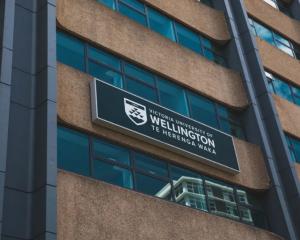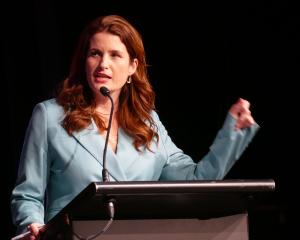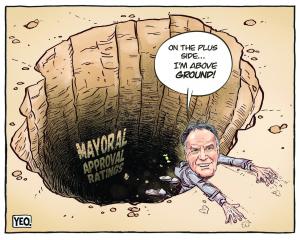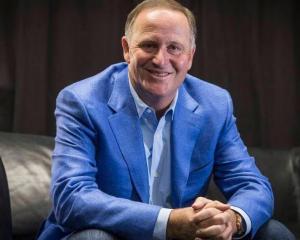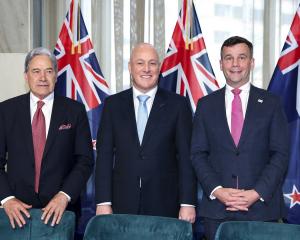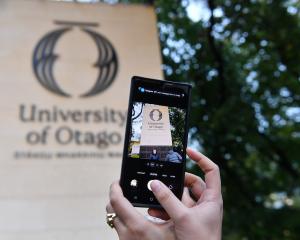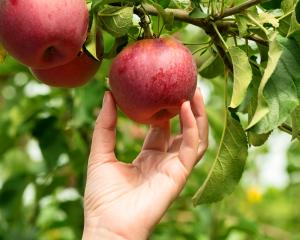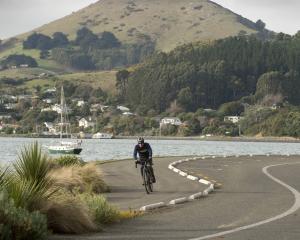''We realise the importance of our voices only when we are silenced,'' said Malala Yousafzai.
I admire Malala because she stands up for her beliefs.
Young people can likewise use social media for good, empowering small groups and connecting people on a global level.
But its massive potential can also be used to bad ends.
''Aside from all the cats,'' says Alexis Ohanian, of social networking website Reddit, the internet is ''an open and level playing field where all links are created equal''.
This dramatic change from older media, where big organisations inform passive consumers, means that everyone can create and share content, breaking barriers between ''consumers'' and ''producers''.
Once, the voices of young people could have drowned in the sea of news, or appeared only in a letter to the editor.
An example of social media used for the good is the Facebook group ''Campaign to free the girls in Nigeria'', created in Dunedin to help young people understand the value of education.
It inspired almost 1500 members to respond to Boko Haram's kidnapping of Nigerian girls.
On ''Ribbon Days'', students at dozens of schools, including mine, wore green and white ribbons to raise awareness and money.
As Sara Sheridan says, ''I'm very aware we are the first generation ever to have such incredible opportunities to express ourselves publicly to the world''.
For the first time in human history, ordinary people can connect on a global level, without restrictions on distance and time.
We are no longer limited by a phone cord or slow emails, for apps connect us to anyone, anywhere.
Once the stuff of science fiction, apps are now our day-to-day reality.
For the 757 million Facebook users who log on daily, never has it been easier to contact friends from around the world.
Users of social media connect with others sharing the same passions and interests rather than the same location.
As Brian Solis says, ''Social media sparks a revolution that we, the people, have a voice, and through the democratisation of content and ideas we can once again unite around common passions, inspire movements and ignite change.''
Users of Twitter connect globally to tackle social problems.
When misogyny apparently sparked the Isla Vista killings, the hashtag #yesallwomen showed that though not all men are sexist, all women can be victims of sexism.
As one tweet reads, ''#YesAllWomen because when a girl is harassed or even groped by a stranger in public, we're told to 'take it as a compliment'.''
Within a day, 500,000 tweets and intense discussion on Tumblr spread throughout the globe, proving that social media can make a massive impact.
Before the internet, individuals could only access newspapers, TV or the radio, all created by big companies.
But social media offers content created by the people.
On Twitter, for example, messages from friends enjoy equal status with messages from institutions.
Instead of companies dictating to the media, people learn from people.
Different perspectives allow users of social media to resist government bias.
For example, after the Chinese government covered up an earthquake, people tweeted in 2008 about one in Sichuan before it made it into the news.
Thus users have more control over the media and freedom of the press.
Social media also allows more people like me to become producers by setting up YouTube accounts and Etsy stores to make individual products for all the world to see.
So where next?
Social media has the potential to connect our society and influence us in a positive way.
I hope that it can continue to educate people and evolve in a constructive manner.
As with all good things, some people will always abuse it.
One instance is censorship of the media, which in China and North Korea, for example, restricts what an individual can see and share.
Censorship limits freedom of the press, that essential tool for ensuring that governments do not get too much power and that individuals still have a say.
On a smaller scale, and problematic especially among young people, is cyber-bullying.
One in five high school students in New Zealand may have fallen victim to cyber-bullying, where bullies feel disconnected from the pain they inflict from behind their computer screens.
But does using this valuable asset to harm others overwhelm the good things about social media?Social media can be amazing or heart-breaking.
Its radical aspects include empowerment of small groups, worldwide connectivity, and the way it allows everyone to be a content producer.
But its power can also be abused.
So how will you use social media? After all, behind the screens, there are just people.
• Kelly Stitely, of Otago Girls' High School, with this essay last week won the National Council of Women Dunedin branch's 2014 Dawn Ibbotson essay competition.
Beth Clearwater, Bayfield High School, was second; Zoe Sinclair, Columba College, third; Kristen Hackfath, Taieri College, commended; Acacia Murray, Mount Aspiring College, commended.

